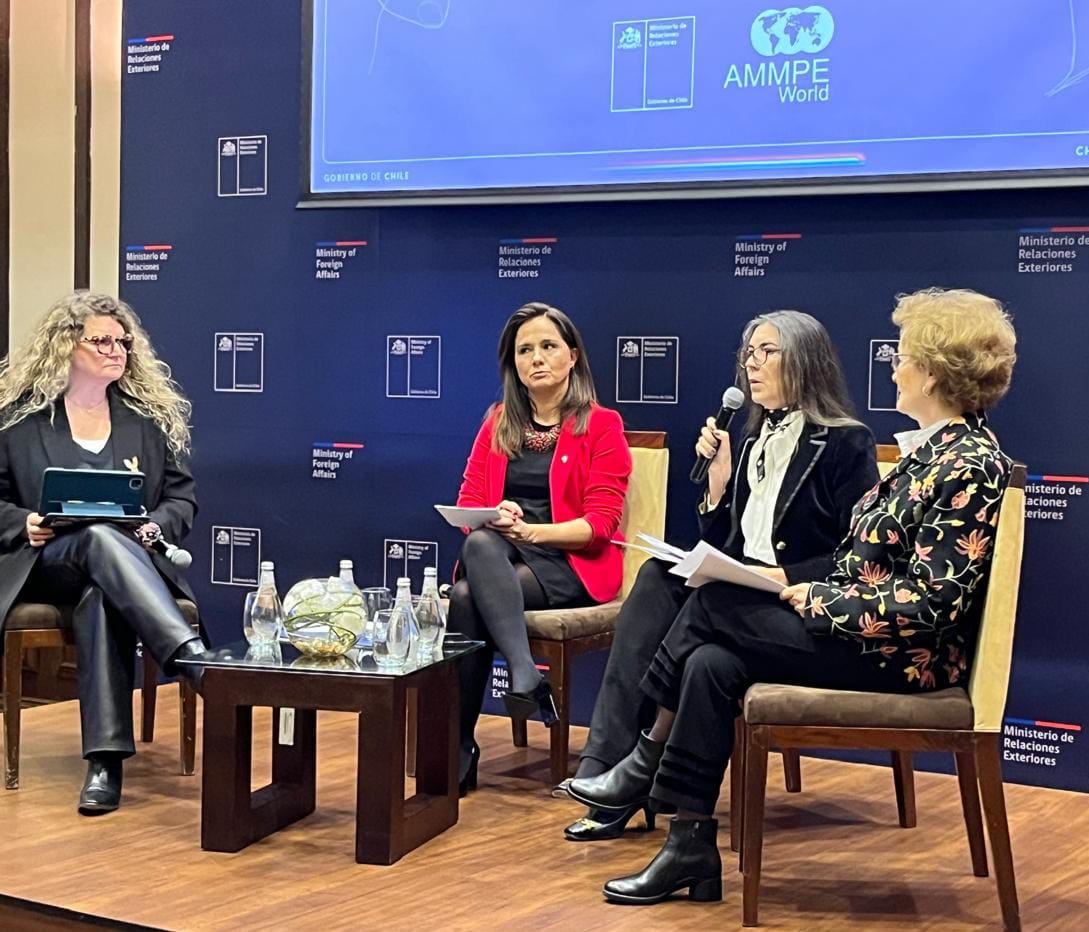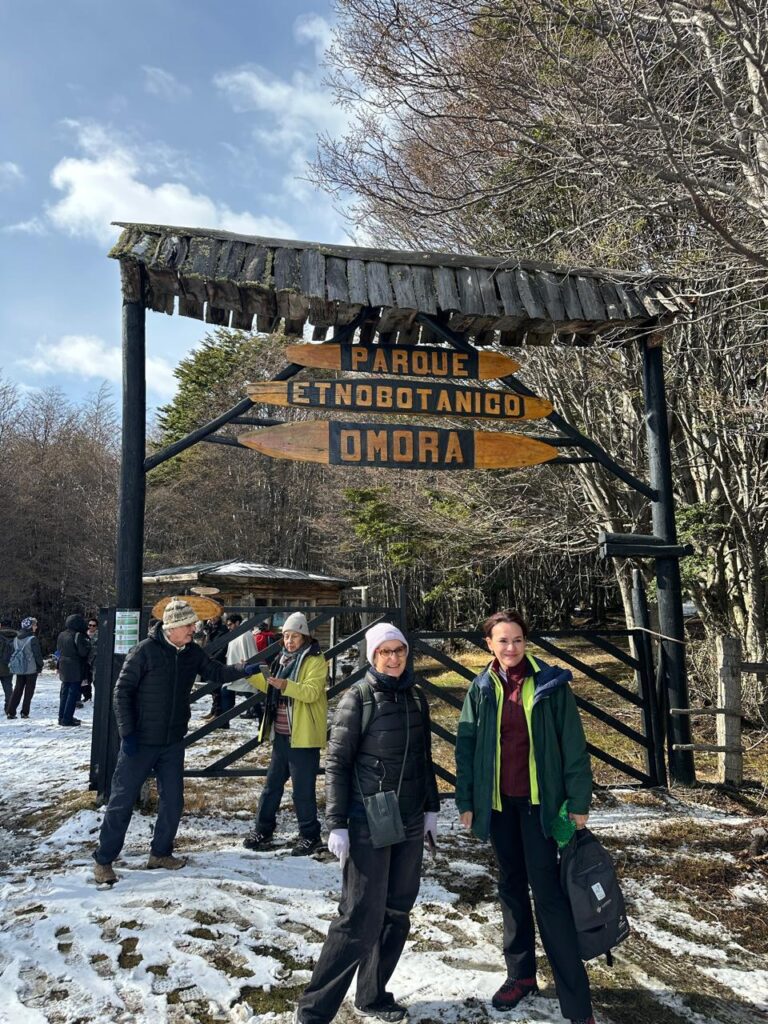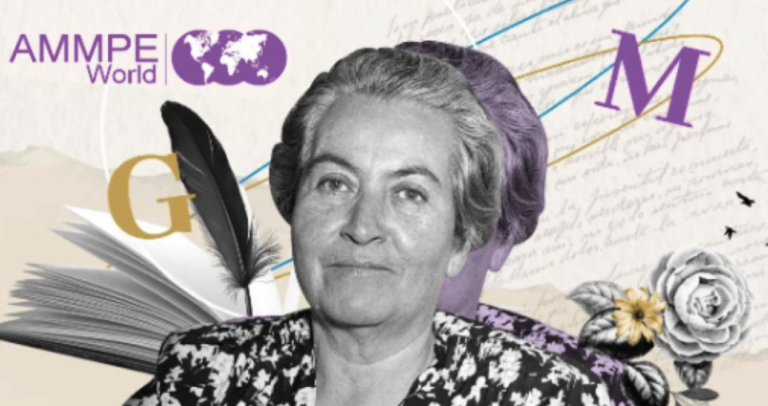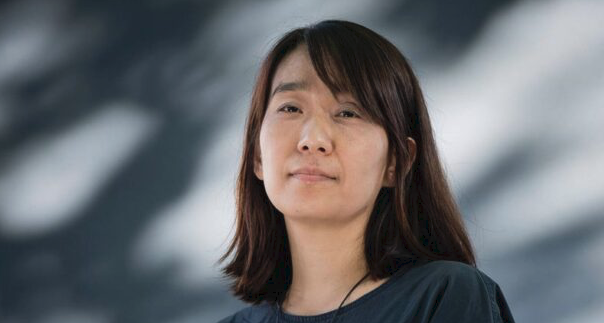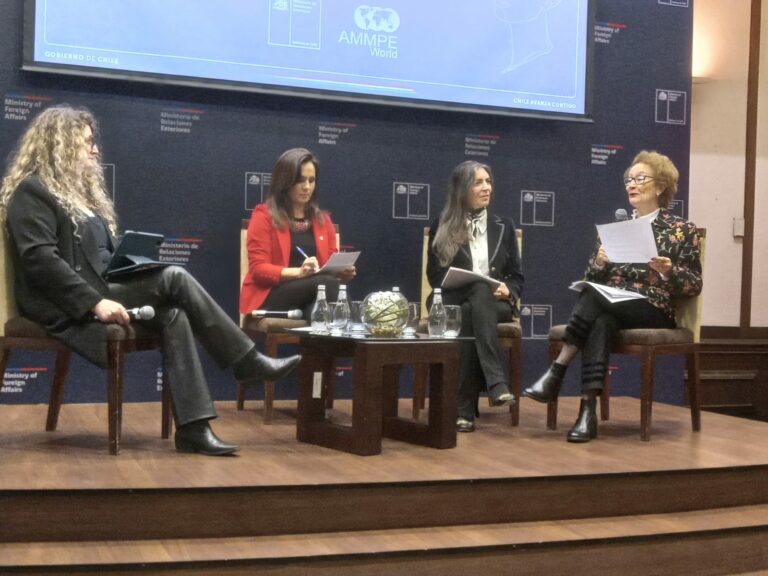MMPE World President: Democracy and Journalism under Attack
"Democracy and journalism are under attack... Faced with this picture of hopelessness and the advance of those who want to subvert fundamental rights, subvert our democracies, the answer has to be "good journalism" and a return to the known houses, to those that operate under the principle of ethics and the common good."
This was stated by Elia Simeone, president of the World Association of Women Journalists and Writers (AMMPE World), at a conference on journalism and democracy held at the end of June in Santiago, in the O'Higgins Room of the Chilean Ministry of Foreign Affairs.
The following is a summary of her speech:
The recent elections in Europe, the conflicts in Ukraine, Gaza and other parts of the world, the failed coup attempt in Bolivia and the presidential debate in the United States are speaking clearly: democracy is not at its best. Putin was re-elected for his fifth term, with 87% of the vote, but with elections controlled by the Kremlin and opponents killed, exiled or prevented from participating. The most recent columns or literature carry titles such as Democracy in danger, Democracy under fire or, straightforwardly, The decline of democracy. Democracia en peligro, Democracia bajo fuego o, derechamente, El ocaso de la democracia.
Journalism and the press are not faring much better. The media face the growing challenges of disinformation -of which they are accused, but are not part-, the loss of trust, political attacks and, of course, the uncertainty of the business, with the drain of readers and advertising and with the strategies of the big technology companies to precipitate their fall, almost leading them to obsolescence as if they were an appliance, one more piece of equipment to be discarded, not because of malfunction, but because, apparently, it is not responding to the demands of the market, a market -by the way- that they are controlling more and more thanks to their algorithms and stratagems.
In this not very encouraging scenario, there is still room for democracy, even if it seems to be in retreat, and its consubstantial and unconditional ally: freedom of expression and freedom of the press.
Democracy is a rather new form of government that has allowed us to advance in rights, including the rights of girls and women. But today, what we thought we had achieved can, at any moment, disappear.
The recent elections in the European Parliament and in France have made the position of the ultra-right forces more than clear and this, added to a series of populist and authoritarian rulers, alerts us that we are facing a trend that no longer appears to be passing, but is now reaching the majorities needed to seize power.
It seems that we are at a turning point, where people -even in the United States and England- are abandoning their belief in democracy and are valuing populism and authoritarianism.
Why? Some authors, such as Anne Applebaum, have suggested that man has a predisposition to authoritarianism and that, faced with a world that is too complex, saturated with information and full of insecurities, we become nostalgic for order and security. Thus, those simplistic speeches begin to make sense, the post-truth emerges, the caricaturization of the opponent. Figures emerge who promise to solve at a stroke all that we see that is wrong. Populist leaders and conspiracies emerge to explain what seems complex to us. Polarization, belligerent rhetoric and adversarial logic emerge in the public discourse, underpinned by contempt for human complexity and the determination to standardize everything, eliminating the nuances and contradictions inherent to our nature.
The former Chilean Foreign Minister, Heraldo Muñoz, recently declared that authoritarianism is eternal and that single parties and single leaders, more than a philosophy, are mechanisms for accessing and retaining power.
In much of the world, the hijacking of democracies is being done from within, gradually, stealthily, respecting the game of the majorities. Once installed in power, democratic institutions are displaced, rights are violated, laws are changed and repealed.
At the same time, corruption advances by leaps and bounds, eating away at everything and groups, such as organized crime, install their own logics. What happens to journalism in the meantime?
What happens to journalism in the meantime?
"In these times of darkness and hopelessness...", so began the speech explaining why the Press Freedom Award was presented last May to Palestinian journalists covering the conflict in Gaza. The recent report by the International Federation of Journalists put the number of reporters killed last year at 129, 70% of them in the Gaza Strip, calling 2023 "one of the worst years". After the Middle East, the most dangerous regions for the press were Asia-Pacific, where 12 journalists were killed, and Latin America, with 11 murders.
How do we begin 2024? According to Reporters Without Borders, with 521 journalists imprisoned for arbitrary reasons. China is the biggest prison for them, with 121 professionals locked up. After China and Burma, Belarus became one of the three largest prisons in the world and has the highest number of women journalists (10) imprisoned, after China, with 14. Iran and Turkey have also made imprisonment a tool to repress reporters.
This 2024 began with 54 journalists kidnapped and 84 missing professionals. Of these, almost one in three is Mexican.
With or without democratic appearance, the tendency of those who are governing and acceding to power is to close media, strictly control them, censor and prevent that, through them or through social networks, citizens can access material that may propagate opposing thoughts.
Cyber-bullying is today another form of violence that has women journalists as its main victims.
In this sea of uncertainty, what to do? The media and journalists must be strengthened.
We must, first, have educational systems that train citizens. Secondly, journalism schools must respond, providing professionals who understand the role of the press, who inquire, confront the established power, and make questioning, inspection and denunciation habitual practices. Investigative journalism should be encouraged, but also financed.
Next September, Punta Arenas (Chile) will host the XXV World Congress of Women Journalists and Writers, where these issues will be discussed. Spanish journalist and writer Rosa Montero will inaugurate this international event. She has spoken of the challenges we are facing in the face of the "virus of authoritarianism". She said that we must act collectively in the face of the growing citizen support that these ideas are having at the ballot box, even in regimes with public freedoms. Shee said that we cannot surrender to the stratagem of using multiple channels so that power, the powerful, can address the people directly, without going through journalists and the media. Faced with this picture of despair and the advance of those who want to subvert fundamental rights, subvert our democracies, the answer has to be "good journalism" and the return to the familiar houses, to those that operate under the principle of ethics and the common good.
Faced with this picture of despair and the advance of those who want to subvert fundamental rights, subvert our democracies, the answer has to be "good journalism" and the return to the familiar houses, to those that operate under the principle of ethics and the common good.
Democracy has not succumbed and, as Montero encourages us, it is a priority to go out to the streets, to understand what people are living, suffering and waiting for, to identify where those who prefer authoritarian governments were forgotten because they lost confidence, because nobody answered them or gave them their basic securities.
